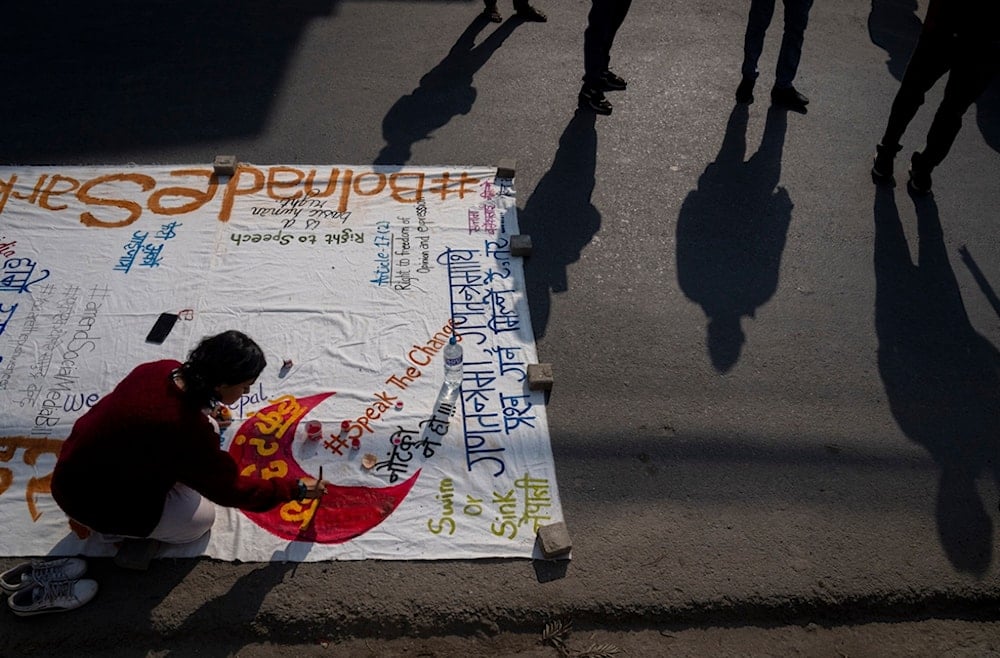Nepal blocks Facebook, X, YouTube after firms defy local registration
Officials in Nepal defend stricter digital rules as a way to ensure accountability, requiring social media companies to register and follow local law.
-

Nepalese students affiliated with the Nepali Congress protest against the government proposed social media bill, arguing that it will impact freedom of speech and demanding its revision in Kathmandu, Nepal, Wednesday, February 12, 2025. (AP)
Nepal’s government announced Thursday that it is blocking access to major social media platforms, including Facebook, X, and YouTube, after the companies failed to comply with new regulations requiring official registration in the country.
Minister for Communication and Information Prithvi Subba Gurung said nearly two dozen platforms widely used in Nepal had been repeatedly notified to register but ignored the directives. “The platforms will be blocked immediately,” he said.
Some services, however, remain accessible. TikTok, Viber, and three other platforms are permitted to continue operating as they have completed the registration process.
A bill currently before parliament seeks to further regulate online platforms, ensuring they are “properly managed, responsible and accountable,” according to government officials.
Wider context
Nepal has stepped up efforts to regulate online platforms, citing concerns over misinformation, political unrest, and public safety.
Earlier this year, the government introduced a draft bill requiring social media companies to register locally and establish a liaison office in the country. Officials say the legislation is intended to hold platforms accountable for content circulated in Nepal, including posts deemed “illegal” or “harmful.”
Rights groups, however, warn that the measures grant authorities sweeping powers to police online speech, threatening freedom of expression and digital rights. With millions of Nepalis now active on Facebook, YouTube, TikTok, and X, social media has become a central arena for political debate and civic mobilization.
The latest decision to block platforms that refused registration comes against a backdrop of rising political tension, as opposition groups and activists reportedly depend on online networks to organize and communicate.

 2 Min Read
2 Min Read










